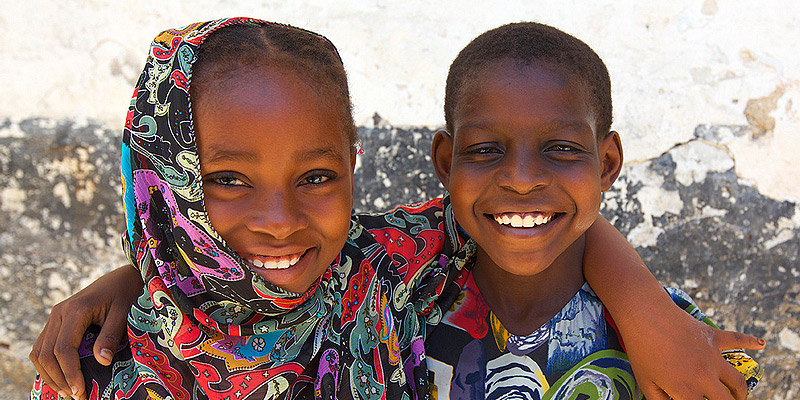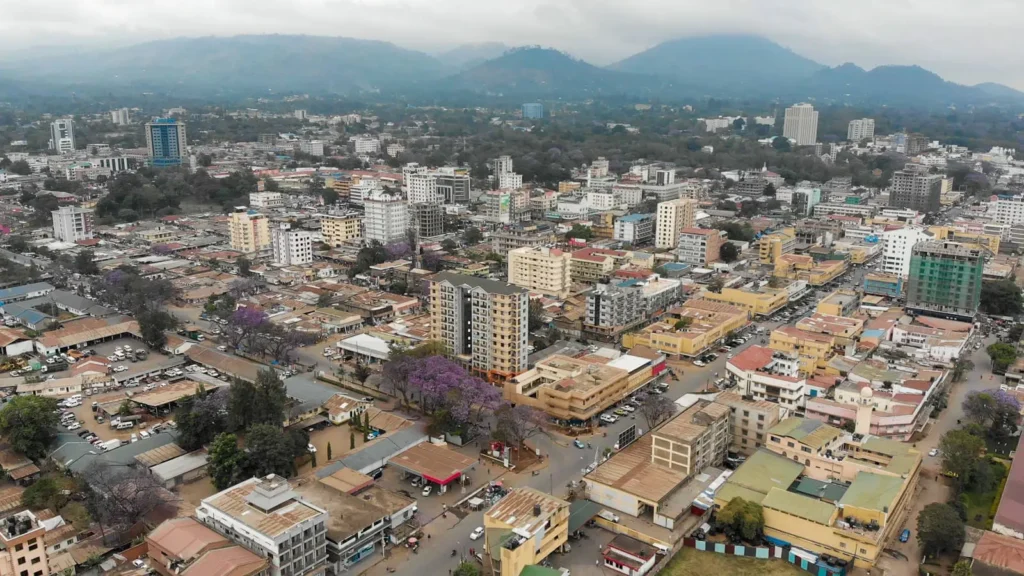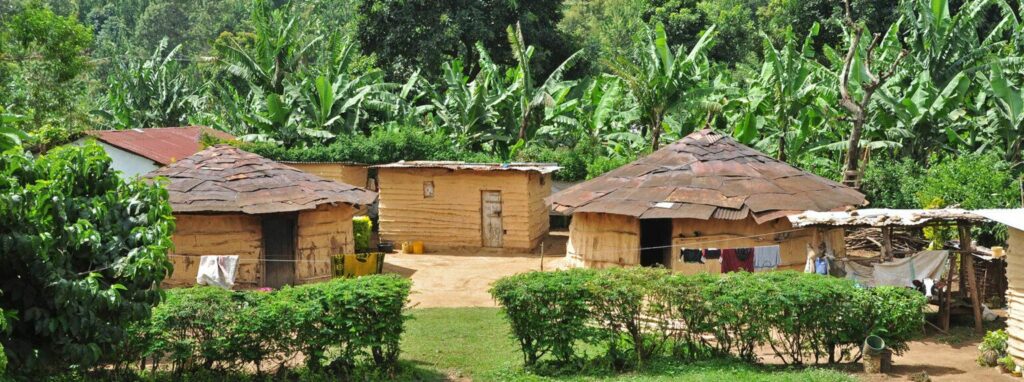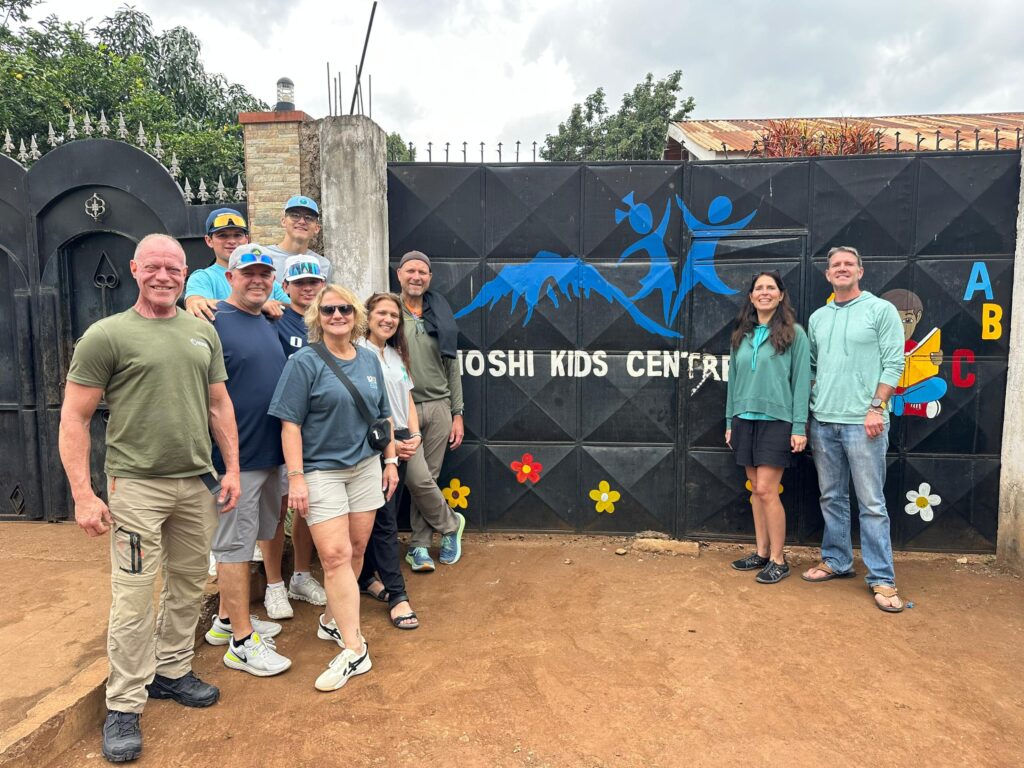Tanzanian culture is a delightful mix of influences with over 120 tribes. Tanzania is one of the most culturally diverse countries in the world. From the tall graceful Maasai warriors, the ancient ways of the Hadza bushmen, the resourceful agricultural practices of the Wameru, the artistic talents of the Makonde to the Chaga farmers and traders. Each of the 120 different tribes in Tanzania have their own distinct ways of life but together, they gracefully unite to form Tanzania.

Volunteering in Tanzania offers more than just a chance to give back—it’s a doorway to meaningful cultural exchange that transforms both volunteers and local communities. From learning Swahili phrases in bustling markets to joining Maasai warriors in traditional dances, volunteers with Volunteers Tanzania immerse themselves in the vibrant tapestry of Tanzanian culture while fostering global understanding.
The Heart of Cultural Exchange in Tanzania

Tanzania, a land of over 120 ethnic groups, is a cultural mosaic where traditions like Maasai beadwork, Swahili storytelling, and Chagga farming practices thrive. Volunteering here isn’t just about teaching or building—it’s about connecting with people and traditions.
Volunteers engage with locals in settings like:
- Arusha’s lively markets, where bargaining in Swahili becomes a daily lesson.
- Zanzibar’s coastal villages, where Swahili cuisine and fishing traditions come alive.
- Moshi’s community centers, where volunteers interact with children through programs like Moshi Kids Centre.
For example, a volunteer teaching English in Moshi might find their students teaching them Swahili greetings like “Jambo” or “Shikamoo” during breaks.
Cultural exchange goes both ways. While volunteers share knowledge and perspectives, Tanzanian communities teach them about resilience, communal living, and timeless traditions such as the Maasai’s adumu (jumping dance) or the art of brewing local coffee on the slopes of Kilimanjaro.
Tanzania’s Cultural Background: Why It Matters to Volunteers
Understanding Tanzania’s cultural history enriches the volunteer experience. The country’s culture is shaped by:
- Swahili Coast Heritage: For centuries, the East African coast was a hub of trade with Arabs, Indians, and Persians. This influence shaped Swahili culture, blending African, Arab, and Asian traditions. Volunteers in Zanzibar often experience this mix through music, spices, and architecture.
- Maasai Traditions: Known worldwide for their distinctive dress and warrior culture, the Maasai people maintain many of their traditional practices, from beadwork to the iconic jumping dance. Volunteers in Arusha and surrounding areas often engage with Maasai communities.
- Chagga Farming Practices: On the slopes of Kilimanjaro, the Chagga people are known for their coffee farming and innovative irrigation systems. Volunteers here often participate in coffee tours, learning how coffee is grown, harvested, and brewed.
By appreciating Tanzania’s cultural roots, volunteers can connect more deeply with the communities they serve.

A Volunteer’s Journey: Stories of Cultural Connection
Sarah’s Story: Maasai Beadwork in Arusha
Sarah, a Volunteers Tanzania participant, recalls her first visit to a Maasai market in Arusha:
“I was nervous, but a Maasai elder invited me to try beading. She taught me the patterns, and I shared stories about my life back home. By the end, we were laughing like old friends.”
What began as a craft lesson became a bridge between cultures, sparking mutual respect.
Michael’s Story: Cooking with a Family in Zanzibar
In Zanzibar, another volunteer, Michael, joined a Swahili cooking class with a local family.
“Learning to make ugali and nyama choma wasn’t just about food. The family shared stories of their fishing traditions, and I told them about my culture’s festivals. It felt like we were family.”
These stories show how cultural exchange transforms volunteering into a shared journey of discovery.

Types of Volunteer Programs with Cultural Exchange
Different volunteer programs offer unique ways to engage in cultural exchange:
- Education & Teaching: Volunteers teach English, math, or science while also learning Swahili phrases and traditional songs from children.
- Healthcare & Public Health: In clinics, volunteers often exchange knowledge about traditional medicine versus modern healthcare.
- Women Empowerment Projects: Volunteers share skills like business management while learning traditional crafts such as weaving or beadwork.
- Environmental & Conservation Projects: Volunteers working in national parks or on sustainability projects gain insights into local communities’ relationship with the land and wildlife.
Each project becomes more than a task—it’s a cultural conversation.
The Benefits of Cultural Exchange
For Volunteers
- Personal Growth: Immersing in Tanzanian traditions—like attending a Chagga harvest festival or the Sauti za Busara music festival in Zanzibar—builds adaptability, empathy, and cultural awareness.
- Language Skills: Learning Swahili phrases such as “Asante” (thank you) or “Karibu” (welcome) strengthens connections.
- Global Perspective: Engaging with Maasai or Swahili communities helps volunteers understand global issues like sustainability and cultural preservation.
For Tanzanian Communities
- Cultural Pride: When volunteers show genuine interest in traditions, locals feel valued. A Moshi Kids Centre teacher noted: “Volunteers asking about our dances makes our youth proud to share their heritage.”
- Economic Boost: Buying crafts in Maasai markets or paying for homestays directly supports local families.
- Mutual Learning: Locals gain insights into global cultures. For example, a Zanzibar host family learned new teaching approaches from volunteers.
Festivals and Events Volunteers Can Experience
Cultural festivals are some of the best opportunities for exchange. Volunteers in Tanzania can participate in:
- Sauti za Busara (Zanzibar): An annual music festival celebrating African rhythms. Volunteers experience Swahili culture through dance and music.
- Kilimanjaro Marathon (Moshi): More than a race—it’s a community celebration with local food, music, and cultural pride.
- Nane Nane Agricultural Festival: Held every August, this festival showcases Tanzania’s farming traditions, crafts, and foods.
- Karibu-Kilifair (Arusha): A tourism and cultural expo where volunteers can meet local artisans and cultural groups.
By joining these events, volunteers become part of Tanzania’s living culture.
Challenges of Cultural Exchange—and How to Overcome Them
Cultural exchange is rewarding, but it’s not always easy. Volunteers may face:
- Language Barriers: Swahili can be challenging, but learning basic phrases makes a big difference.
- Cultural Misunderstandings: For example, Tanzania’s relaxed concept of time (“pole pole”) may feel frustrating at first.
- Adjusting to New Lifestyles: Simple accommodations, different foods, and limited internet access may require adaptation.
Solutions:
- Take cultural orientation seriously.
- Ask respectful questions.
- Stay patient and open-minded.
Overcoming these challenges often becomes part of the most memorable growth.
Long-Term Impact of Cultural Exchange
Cultural exchange through volunteering doesn’t end when the trip is over. Many volunteers:
- Stay in touch with Tanzanian friends through social media.
- Return for visits, sometimes bringing their families.
- Share Tanzanian culture back home, becoming “cultural ambassadors.”
- Support community projects long-term through donations or partnerships with organizations like Zara Charity.
This ripple effect makes cultural volunteering a global connector.
Tips for Respectful Cultural Engagement
Listening to others with an open mind allows your employees to learn about different customs and perspectives. It also shows respect and a willingness to understand different viewpoints. In addition to listening, it’s also important to observe the attitudes and behaviors of culturally diverse customers and colleagues. To make the most of cultural exchange while volunteering in Tanzania:
- Learn Basic Swahili: Start with greetings like “Jambo” or “Habari”.
- Respect Traditions: Dress modestly, especially in rural or religious settings.
- Ask Questions: Show curiosity without being intrusive.
- Participate Actively: Join dances, cooking classes, and storytelling sessions.
- Give Back Thoughtfully: Share your culture without imposing it.
- Be Patient: Embrace Tanzania’s relaxed pace.

How Volunteers Tanzania Fosters Cultural Exchange
Volunteers Tanzania ensures cultural immersion is part of every program. Opportunities include:
- Cultural Workshops: Swahili lessons, Maasai crafts, Chagga cooking.
- Community Events: Kilimanjaro Marathon, Sauti za Busara, Nane Nane.
- Homestays: Live with Tanzanian families for a deeper cultural connection.
- Testimonials: Real volunteer stories available on the Volunteers Tanzania Testimonials Page.
Partnerships with organizations like Zara Charity and Moshi Kids Centre ensure authentic and community-driven experiences.
Frequently Asked Questions (FAQ)
1. Do I need to know Swahili before volunteering in Tanzania?
No. While Swahili is widely spoken, most programs provide basic lessons. Even simple greetings like “Asante” (thank you) go a long way.
2. What cultural traditions will I experience as a volunteer?
Depending on your location, you may join Maasai dances, Swahili cooking, Chagga coffee farming, or community festivals like Sauti za Busara.
3. What should I wear when volunteering in Tanzania?
Dress modestly—cover shoulders and knees, especially in villages, schools, and religious areas. Light cotton clothing works best in the tropical climate.
4. What foods will I eat in Tanzania?
Common meals include ugali (maize porridge), nyama choma (grilled meat), rice, beans, and fresh fruits. Volunteers often enjoy cooking classes with host families.
5. Is it safe to volunteer in Tanzania?
Yes. Tanzania is one of the safest African countries for volunteers, especially when working with reputable organizations like Volunteers Tanzania. Basic precautions—like avoiding walking alone at night—still apply.
6. How does cultural exchange benefit local communities?
It fosters cultural pride, creates economic opportunities through local markets and homestays, and encourages knowledge-sharing.
Join the Cultural Exchange in Tanzania
Volunteering in Tanzania is more than service—it’s an invitation to connect globally, learn deeply, and grow personally. Whether you’re dancing with Maasai warriors, sharing stories in Zanzibar, or teaching children in Moshi, you’ll create memories and friendships that last a lifetime.
Start your journey today
Start your journey today with Volunteers Tanzania. Explore programs in education, healthcare, and community development while immersing yourself in authentic cultural experiences.Ready to make a difference? Apply now and join a global network of changemakers building bridges through cultural exchange in Tanzania.